
Vatican City, Sep 18, 2017 / 09:00 am (CNA/EWTN News).- In a letter to Japanese bishops, Pope Francis urges his brother prelates to use the example of their country’s martyrs as an inspiration to continue their mission of evangelization amid modern-day challenges.
In the letter, dated Sept. 14, the Pope recalled the numerous martyrs in Japan, including Paul Miki and his 25 companions, who were killed in hatred of the faith in 1597, during a period of strong persecution in the country.
Published Sept. 17, the letter was sent to the Japanese bishops ahead of the visit of Cardinal Fernando Filoni, Prefect of the Congregation for the Evangelization of Peoples, who will be on an official visit to Japan from Sept. 17-26.
Japan holds an important place in the Pope’s heart. He wanted to be a missionary in the country while still a young Jesuit, but was unable to go due to health reasons after having part of his lung removed due to a serious pulmonary illness.
In his letter Francis also recalled the recently-beatified Justus Takayama Ukon, a prestigious samurai who chose to live in poverty and exile rather than renounce his faith, as well as the witness of Japan’s numerous “hidden Christians,” who from 1600 to the mid-1800s were forced to live their faith clandestinely due to ongoing persecution.
“The long line of martyrs and confessors of the faith, by nationality, language, social class and age, had in common a deep love for the Son of God, renouncing their own civil status or other aspects of their own social condition, all in order to gain Christ,” the Pope said in the letter.
With this “spiritual heritage” in mind, the Pope addressed the bishops directly, saying they have inherited this witness and “with gentle solicitude continue the task of evangelization, especially caring for the most weak and promoting the integration of faithful from different backgrounds into the community.”
He thanked them for their commitment to the poor, as well as their efforts in cultural education, interreligious dialogue and in caring for creation, as well as the emphasis the Church in Japan places on mission.
“If the Church was born Catholic (that is, universal), it means that it was born ‘going out,’ that it was born missionary,” Francis said, adding that it is love of Christ which compels us “to offer our lives for the Gospel.”
“Such dynamism dies if we lose missionary enthusiasm. For this reason life is strengthened in giving it, and weakens in isolation and agitation,” he said, noting that those who “make the most” of the chances life offers are the ones “who leave the safe shore and become passionate about the mission of communicating life to others.”
Francis then turned to the passage in the Gospels when Jesus tells his disciples they are the “salt of the earth” and the “light of the world.”
Both salt and light operate in service, he said, explaining that as salt, the Church has the task of “preserving from corruption and giving flavor,” while as light she “prevents darkness from prevailing, ensuring a clear vision of reality and the purpose of existence.”
Jesus’ words in this passage are also “a strong call to fidelity and authenticity,” he said, and told the bishops that God has entrusted a “great spiritual and moral mission” to the Church in Japan.
While there are “no small difficulties” in the country due to a lack of clergy, religious and a limited participation of lay faithful, the Pope stressed that “the scarcity of workers cannot reduce the commitment to evangelize.”
Current challenges, he said, “cannot make us resigned nor defer to an irenic and numbing dialogue, even if some problematic situations arouse considerable concern.”
He pointed examples of these challenges, the Pope referred to the high rates of divorce and suicide among youth; the numerous people who live “totally disengaged from social life;” the presence of religious and spiritual “formalism;” moral relativism; religious indifference and “the obsession for work and earnings.”
A society that runs on economic development as a consequence creates a class of poor, marginalized and excluded persons, he said, explaining that this goes not just for the materially poor, but also “those who are spirituality and morally like this.”
“In this peculiar context, the need for the Church in Japan to constantly renew the choice for the mission of Jesus, both in salt and in light, becomes urgent,” he said. “The genuine evangelistic strength of your Church, which comes from being a Church of martyrs and confessors of the faith, is a great asset to guard and develop.”
Francis then stressed the need for a “a solid and integral” priestly and religious formation, which he said is “a particularly urgent task today” thanks to the widespread promotion of the “culture of the provisional.”
This mentality also leads youth to believe “that it’s not possible to truly love, that nothing stable exists and that everything, including love, is relative to circumstances and the needs of feeling,” he said.
Because of this, a key step in the formation process is to help those tasked with it to “understand and experience in depth the characteristics of Jesus’ love, which is free, involves self-sacrifice and is merciful forgiveness,” the Pope said.
“This experience renders us capable of going against the current and trusting the Lord, who does not delude. It’s the witness Japanese society is so thirsty for.”
Pope Francis closed his letter by pointing to the presence of ecclesial movements in the country. With their “evangelistic impulse and witness,” he said these movements can be of great help “in the pastoral service and mission ‘ad gentes’ (to the nations).”
“These realities contribute to the work of evanglization,” he said, adding that as bishops, “we are called to know and accompany the charisms that they carry and make them part of our work in the context of pastoral integration.”
Francis closed his letter praying that the Lord would “send workers into his Church in Japan and support you with his consolation,” and gave them his blessing.
 […]
[…]






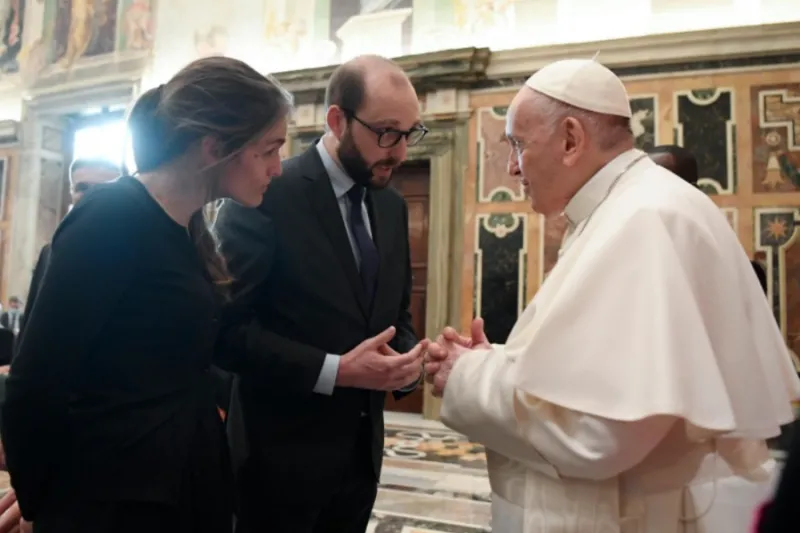
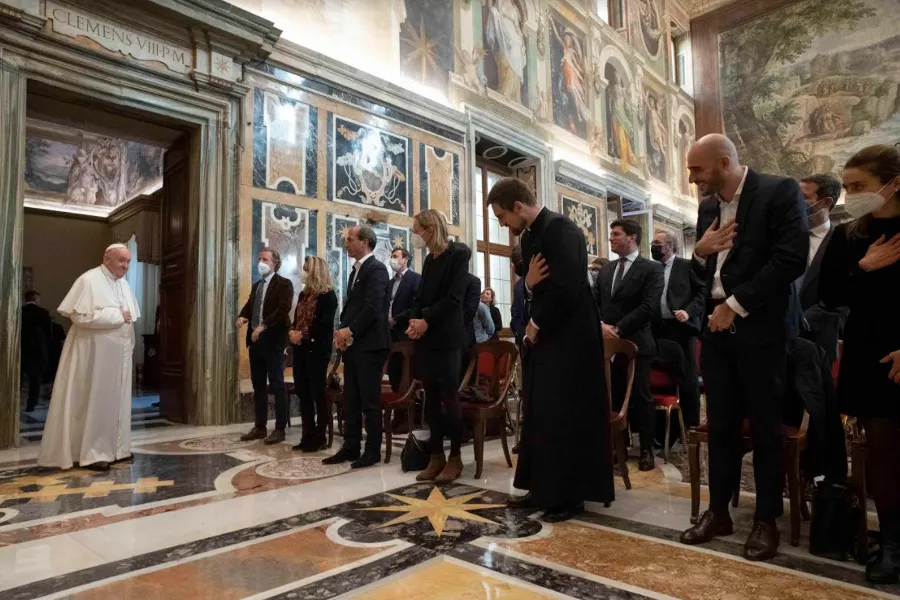
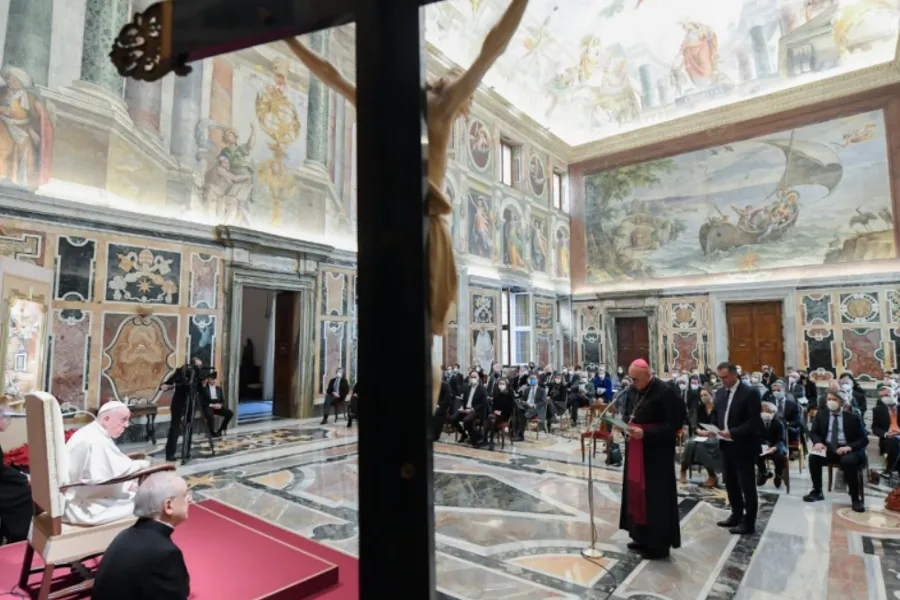

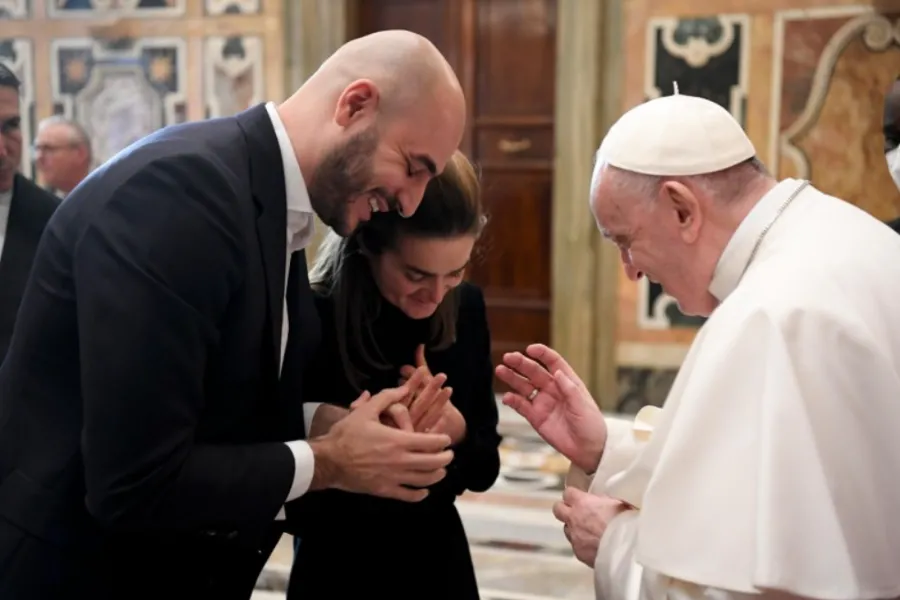
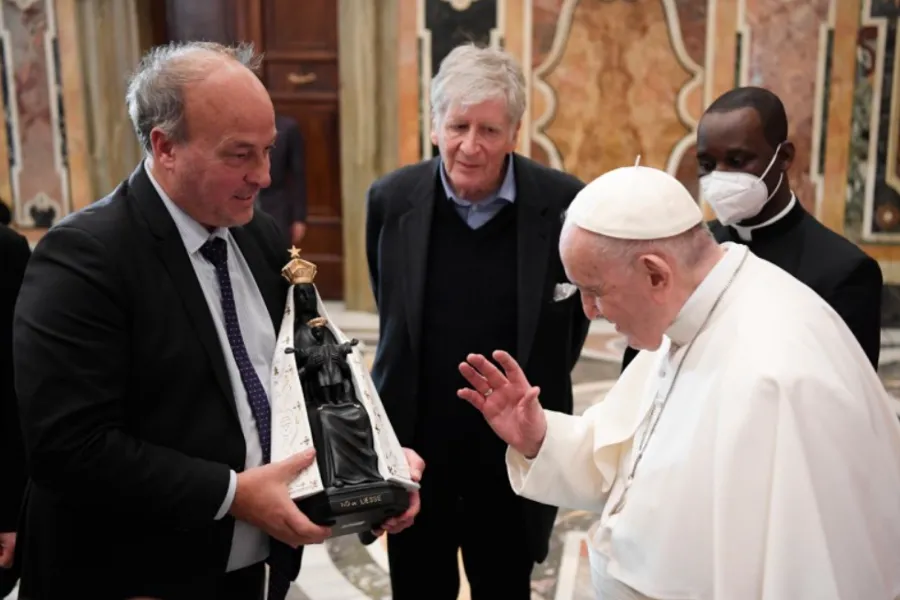
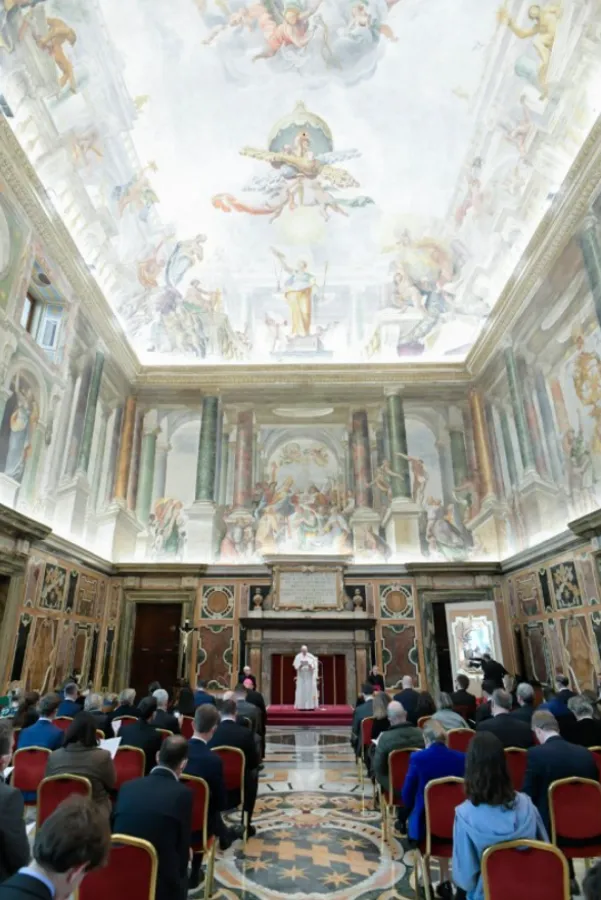
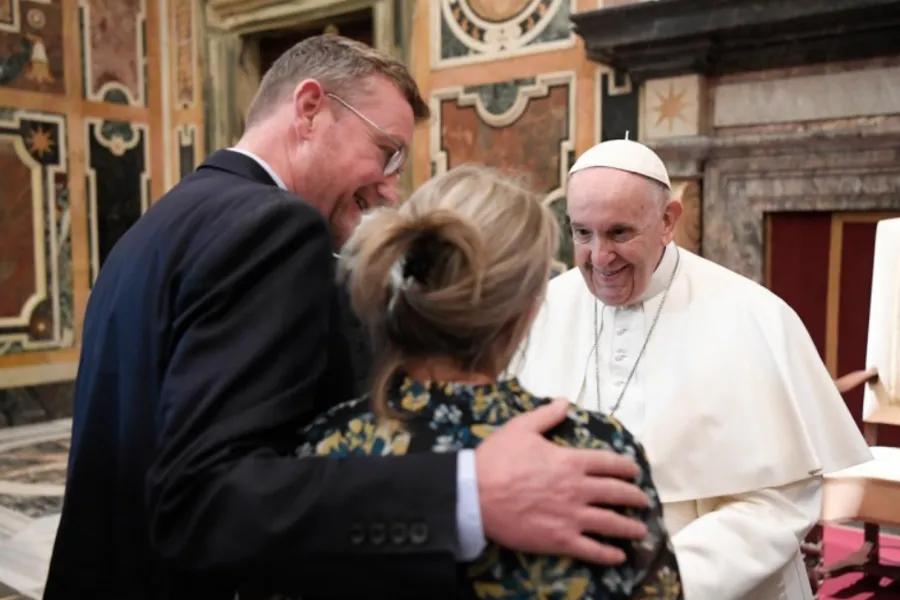
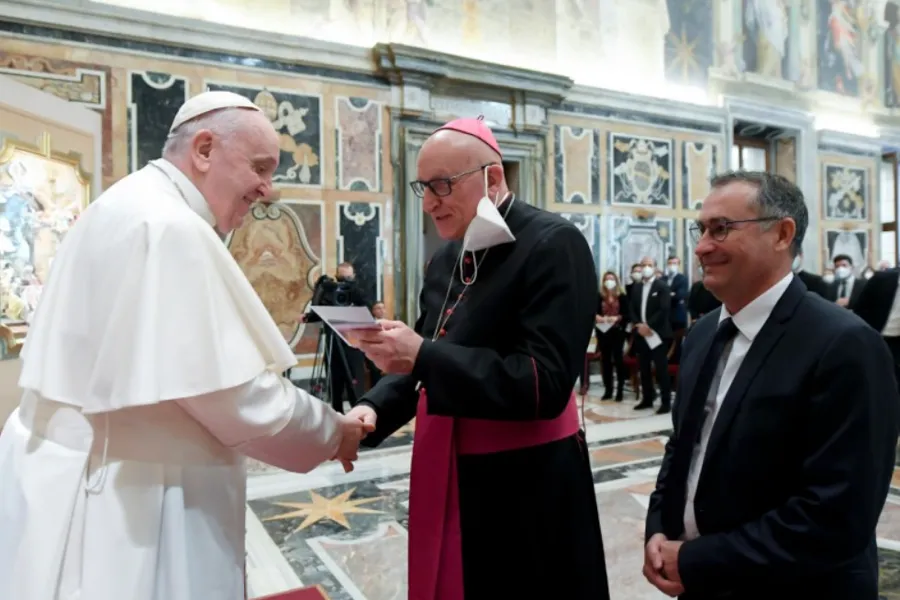
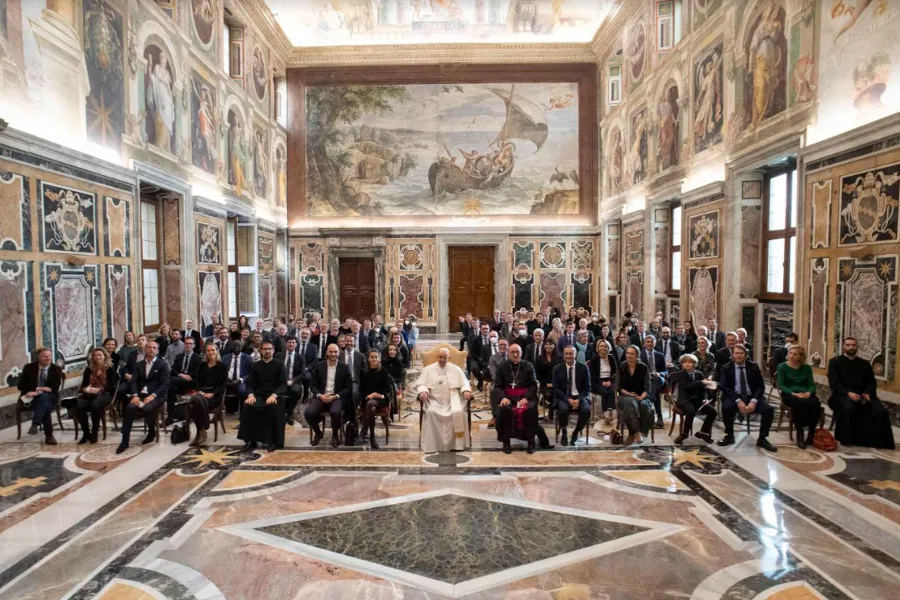

When will Cardinal Fernandez be investigated for his published account of an erotic conversation he claimed to have had with a sixteen year old girl? That is hardly appropriate pastoral behavior.
Exactly, Lucy.
I’m pretty sure he’s not the one to be in charge of issuing pronouncements on any kinds of moral issues, contemporary or ancient.
The epically failed Bergoglio imbroglio grinds on.
And on.
And on…
Around the same time Francis will be called to account for his frivolous disregard for safeguarding the Deposit of Faith.
We must differentiate between the man and his work to some extent. Michelangelo, who created the famous fresco “The Creation “ in The sistine chapel , was far from being a saint. We must also allow for repentance and change. We never know what is in the heart of a man.Ones past doesn’t necessarily determine his future. We must also remember that sometimes bad men do good things and good men do bad things. Life is very messy and multi dimensional and we must be careful in passing judgment. In this case let’s see what he says and take him at his word, not reading his motives into it.
“The Argentine cardinal in his interview with EFE argued that “people who are concerned” about his work will “be put at ease” by the new document.”
To me it sounds like a habitual (sadly) Vatican’s line: “I say something that violates the Church’s teaching and all are shocked and demand explanations; I will explain nothing but to pacify them and to regain credibility I then say something in a line with the Church’s teaching on another topic so all would sigh in relief.”
This works only for those with a fragmented memory i.e. who are unable to remember bashing when they are given flowers after it, even if it is a years long cycle (bashing – flowers, bashing – flowers etc.).
The words of Fernandez and those who cover him mean nothing to me until he repents and removes his ‘FS’ and pseudo-mystical staff. Noteworthy, being on alert and discerning possible deception is not only exhausting but also damaging for a spiritual life. It is an abnormal situation when a believer should be on guard against deceptions and heresies… in his own Church.
It is detrimental for a soul not to be able to trust those who in a normal situation are supposed to be trusted. It is like not trusting your own father.
I’m with you on this, Anna.
We read: “The Argentine cardinal in his interview with EFE argued that ‘people who are concerned’ about his work will ‘be put at ease’ by the new document.”
Four easing questions about the new document:
1. Does it replace the Natural Law in its entirety with only a shortlist of prohibitions?
2. Does it explicitly support the “Catechism,” or does it confuse? Is “Veritatis Splendor” still ignored, of possibly now dismissed as a “special case”–like all of continental Africa, Poland, Hungary, Ukraine, Kazakhstan, Peru, and parts of Argentina, France, Spain, etc. (re Fiducia Supplicans)?
3. Is the document consistent with “Il dono della vita” (“Respect for Human Life in Origin and the Dignity of Procreation,” John Paul II/Ratzinger, February 22, 1987), or not?
The standing document offers direct and succinct answers to direct and numbered questions submitted by “episcopal conferences or individual bishops, by theologians, doctors and scientists, concerning biomedical techniques [….and in] conformity with the principles of Catholic morality.”
4. Does the document really put the disrupted Church “at ease”–by rescinding the verbose novelty in Fiducia Supplicans? Or, are the lips of Cardinal Fernandez silent? Rescind or re-sinned?
Good points. I fear that even if it seems to support orthodoxy, it will not be on the basis of innate natural law, but it will undermine moral truth by making it seem like Catholic idiosyncrasies.
I read the opening title to this piece that reads: “Vatican to publish document on ‘moral questions’ regarding human dignity, gender, surrogacy” and immediately thought it was intended as satirical.
Having tragically abused so many physically, the plan is to selectively abuse all of us theologically. This is at the hardened heart of clericalism, the very antithesis of service.
The next pontificate has its work cut out for it in clarification.
Praying for clarification though “morals” are often the umbrella under which non-religious or broadly religious societies categorize and classify what they hold to be truisms about healthy attitudes and behaviors.
The Catholic Church teaches Truth “authored” by God the Father, embodied in the Person of Jesus Christ, and moved in the currents of consciences by the Holy Spirit.
The former–morals–may bend, be distorted, or even introduced or eliminated depending on the egoism of humans; the Church teachings are immutable with respect to the fundamental knowledge and understanding of the person and personhood.
Moreover, since the origin of the Church, incredibly wise and able theologians have developed and shared Truth, emulated by great saints. Always present in authentic doctrine has been the dignity of all persons, as they are created in the image and likeness of God. (It has been individuals who for whatever reason have disrespected their own or others’ being.) Later generations have express fundamental and foundational truths in novel or timely ways to best evangelize the populace of any give time period, but the essence remains constant.
We shall see about this document…yes?
I will not read the document. Possible Heresy is not my cup of tea. Anything coming from Jorge Bergoglio or his Vatican henchmen are not to be trusted. Period.